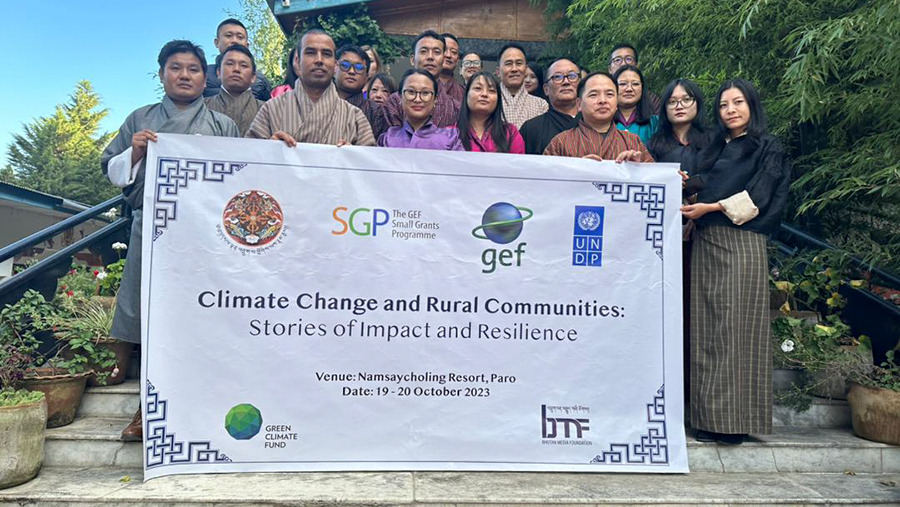
To enhance the working relationship between experts from different institutions and the media, a seminar to discuss climate change ideas was held in Paro, last week. The seminar organised by the Bhutan Media Foundation discussed how climate change is impacting the livelihoods of people in rural communities.
Eight journalists, who received the Bhutan Media Foundation’s climate change reporting grant presented their stories during the seminar.
Stories about mountains, the melting of glaciers and their ripple effects on the emergence of pests and diseases, sustainable land management, and smart agriculture were presented during the seminar.
“There is a little interface between the media and experts in the fields. So, this seminar has successfully brought together the two groups of professionals, the media professionals and the experts in the fields, and built a first-of-its-kind collaboration between the two,” says Needrup Zangpo, the Executive Director of Bhutan Media Foundation.
Experts from academia, civil society, the UN, the National Centre for Hydrology and Meteorology, Bhutan Trust Fund, Bhutan Ecological Society, and Bhutan for Life shared their insights about climate change.
Ugyen Yangchen, a lecturer at the College of Natural Resources says, “many stories covered today in the seminar are mostly in agriculture. Starting from climate-smart agriculture and sustainable land management, these are all technical jargon, I would say. Media people are putting their effort into understanding and sharing these stories with the common people, which an academician cannot do. So, having such a seminar and bringing a lot of experts and giving them in-depth information and discussion is also a very good platform for the media people to carry on further whatever stories they have started.”
“Because of immersive discussions and dialogues, I ended up learning a lot about how climate change is affecting the nomad community. And nomadism is something, which lacks attention from the media and from the public. That is exactly why, being a mountain girl and a trekker and having seen the first-hand impact of climate change on the nomads, I thought I would take this opportunity and pitch this idea,” says Tshering Denkar, a content creator.
Climate change experts at the seminar said the capacity building of media personnel in the field of climate change is crucial.
“They are the voices, that conveys information to the common people, which as an academician is very difficult because we have our own restriction and limitations. Our research papers are meant for certain sections of the population and many people cannot derive the inferences we are trying to convey,” says Ugyen Yangchen.
The Bhutan Media Foundation plans to continue similar capacity-building and information-sharing programmes for journalists and experts.
This seminar is part of the Bhutan Media Foundation’s project titled “Building the Capacity of Bhutanese Media on Climate Change Reporting” supported by the GEF (Global Environment Facility) Small Grants Programme and the UNDP Bhutan.
Namgay Wangchuk, Paro
Edited by Sherub Dorji







